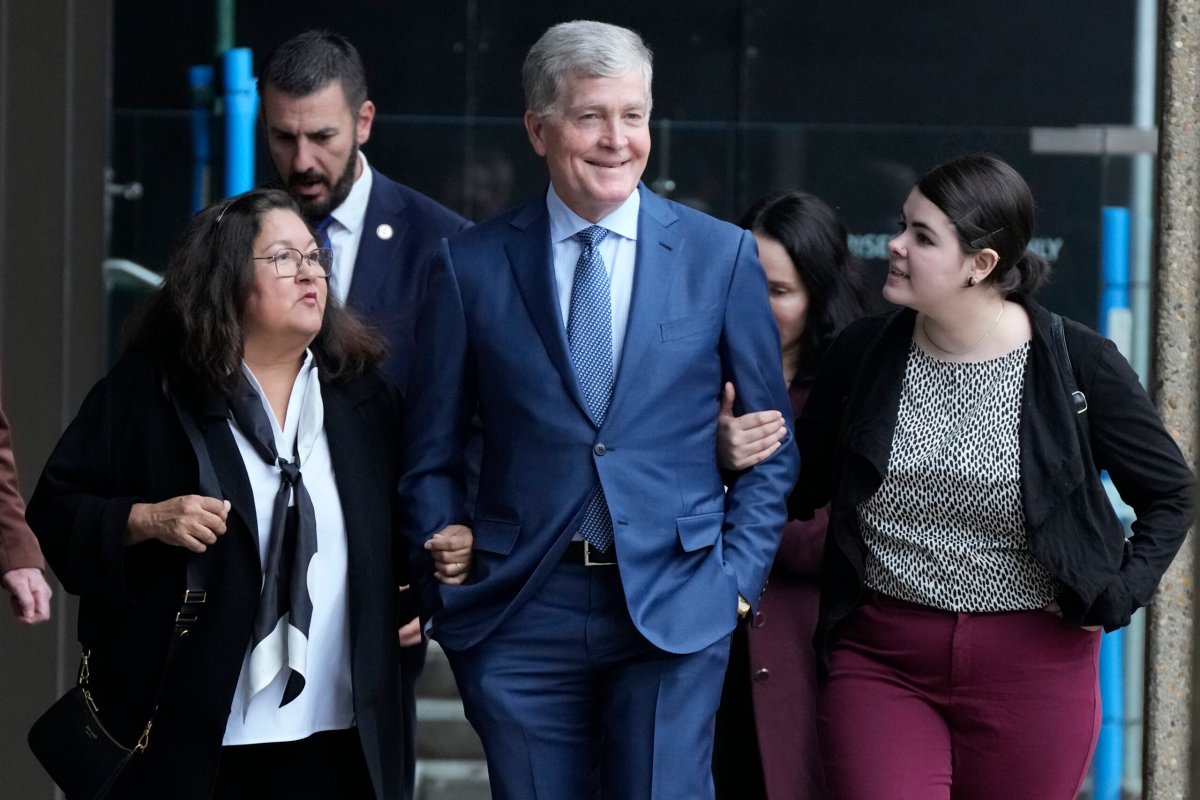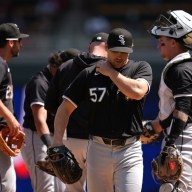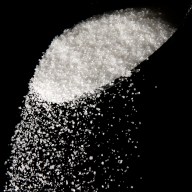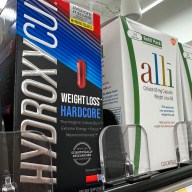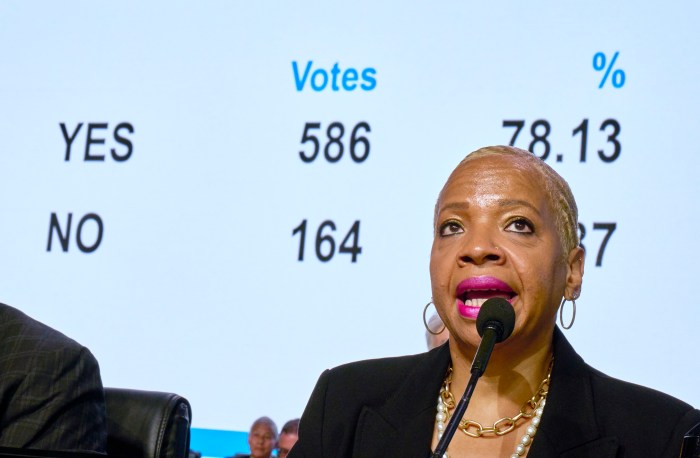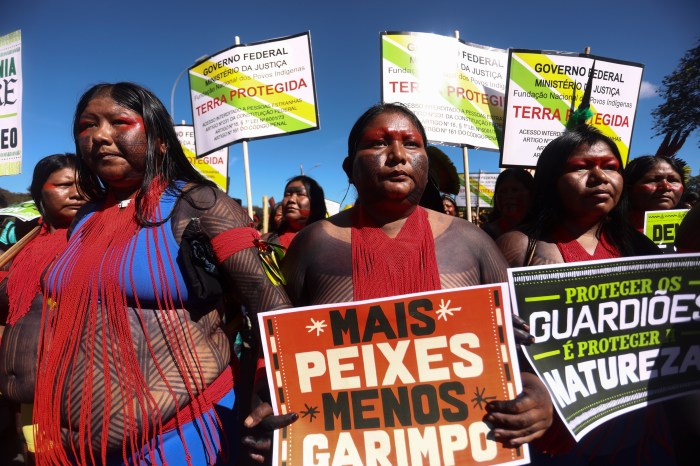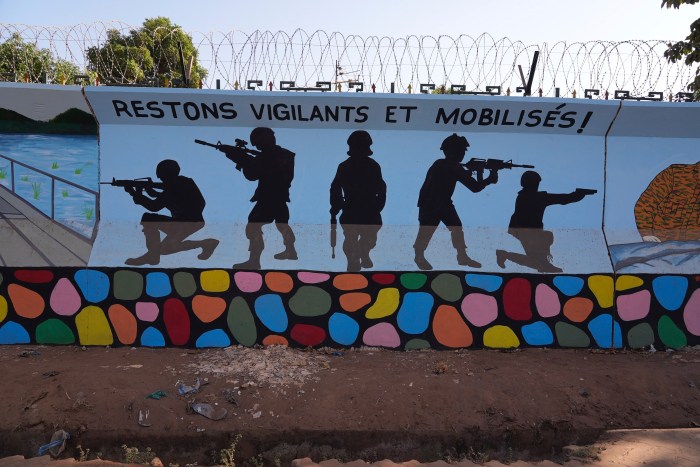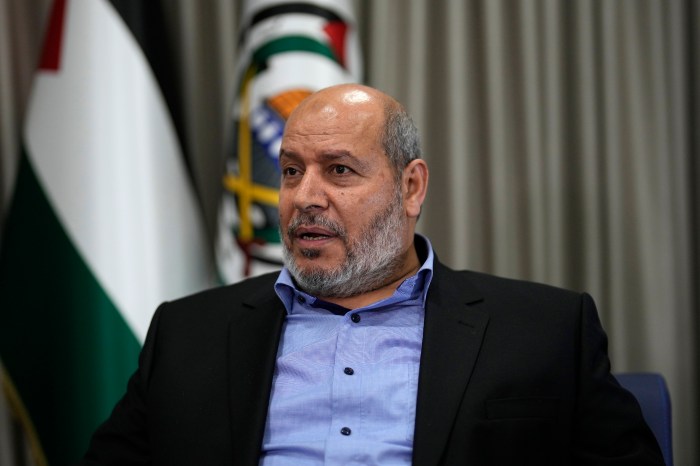SYDNEY (AP) — An Australian man who admitted killing a gay American by punching him off a cliff top in Sydney in 1988 was sentenced on Thursday to nine years in prison, ending the victim’s family’s 35-year battle for justice.
Scott Phillip White, 52, had pleaded guilty in the New South Wales state Supreme Court to Los Angeles-born Scott Johnson’s manslaughter.
White had pleaded guilty last year to the then-27-year-old’s murder — a greater crime — and had been sentenced to more than 12 years in prison. But he changed his mind and had the murder conviction overturned on appeal.
He was pressured into a plea deal after police intercepted a prison phone call between White and a niece in October last year in which he confessed to striking his victim at the cliff top.
Manslaughter carries a maximum sentence of 25 years.
Having already served part of his sentence, White will be eligible for release on parole in 2026.
“Not much is known of the death beyond a punch on a cliff, a fall from a cliff and decades of pain and grief that followed,” Justice Robert Beech-Jones said during sentencing on Thursday.
Johnson’s Boston-based older brother Steve Johnson had fought to get police to launch a criminal investigation since a coroner ruled in 1989 that Scott Johnson had taken his own life.
A second coroner’s inquiry in 2012 could not explain the death and a third inquiry ruled in 2017 that Scott Johnson had been attacked by an unknown assailant or assailants because he was perceived to be homosexual.
“I think our family’s got some peace and I would even say closure,” Steve Johnson told reporters outside the court after the sentencing with his wife Rosemarie and daughter Tessa.
“The killer’s behind bars and he’s admitted to doing it. I fell like I’ve done right by Scott,” he added.
Steve Johnson, a wealthy entrepreneur, offered a 1 million Australian dollar ($667,000) reward in 2020 for information about his brother’s death, matching a reward already offered by police.
Steve Johnson praised White’s “courageous” former wife Helen for coming forward to testify against her former husband, leading to his arrest in 2020. It is not yet clear whether she will collect the rewards.
“That was a break in the case,” Steve Johnson said.
Steve Johnson’s campaign for his brother helped trigger a state government inquiry into police historic indifference toward gay hate crimes and more than 100 unsolved deaths from the mid-1980s until the early 1990s.
Police Chief Inspector Peter Yeomans congratulated Steve Johnson, whom he considers a “good friend,” on his campaign.
“Steve has fought for nearly 35 years. God, to only have a brother like that,” Yeomans said outside court.
On Dec. 10, 1988, White met Johnson at a pub and the pair went for a walk around North Head, which was known at the time to be a popular area among gay people. White, then 18 years old, punched Johnson in the heat of an argument causing Johnson to stagger backward naked and fall to his death.
The American was close to receiving his doctorate from the Australian National University, which he has since been awarded posthumously.
“Dr. Johnson was an American citizen … He had everything to live for,” Beech-Jones said. “The offender left (him) to die.”
White, who now has early onset dementia due to alcohol abuse, was described as a “street kid” at the time of the killing.
“The offender was clearly a damaged albeit physically powerful young man,” Beech-Jones said. “However, he was not broken as he is now.”
The death was originally thought to be a suicide but police eventually opened an investigation into what they suspected was a gay hate crime in 2012. In her now-overturned judgment on the murder conviction, Justice Helen Wilson found there was not enough evidence to show the attack was motivated by Johnson’s sexuality.
Beech-Jones said he could not be satisfied beyond reasonable doubt that the crime was a “gay hate crime.”
“Answers to numerous other questions about how he died, why he died and what happened … some of those answers will never be provided,” Beech-Jones said.
McGuirk contributed to this report from Canberra, Australia.

